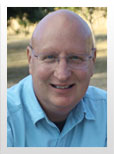|
To receive daily emails from Breaking Christian News to your inbox CLICK HERE
Dr. Corinne Weaver: Help! Why I Can't Sleep?One of the most common reasons for lack of sleep is obstructive sleep apnea. A recent study conducted that over 25 million Americans have been diagnosed with sleep apnea.
Sleep is a vital part of our daily routine. While sleeping, the brain is constantly forming neurological pathways necessary for learning, memory and daily functions. Without the proper amount of sleep, it is difficult to focus and can change overall mood patterns. New research shows that throwing off our body's natural circadian rhythms over the long term can critically disturb the body and brain, causing weight gain, impulsive behavior, and loss of memory (1). Increased risk of diabetes, high blood pressure and thyroid deregulation are also side effects of not getting the right amount of sleep at night. The other day I was having a consultation with a mom of seven children. After doing some blood work I was able to determine how to turn her body around down the healing path. Along with the fact that her the kids are grown and out of the house, she is finally able to sleep. It is amazing how our bodies can survive on little to no sleep. Good health depends on a few factors and sleep is a big one. Natural production of leptin, a hormone produced that triggers our "fullness" or satiety feeling, is lessened when we are sleep deprived. Meanwhile, ghrelin—a hormone which triggers hunger—is heightened. The brain needs two big things to function, glucose and oxygen. Results of one study conducted at the University of Chicago in Illinois showed that when sleep was restricted, leptin levels went down and ghrelin levels went up, appetite increased proportionally, and the desire for high carbohydrate, calorie-dense foods increased by a whopping 45% (2). Researchers suspect these cravings are due to the fact that our brains are fueled by glucose. Therefore, when lack of sleep occurs, our brains search for carbohydrates. So, if you are waking up because you are hungry this is a sign you have blood glucose issues. In other words, when you eat carbohydrates, your blood sugar levels increase. As a response, insulin is then released to manage concentrations of glucose, keeping it in optimal range. The American Diabetes Association reports that people who regularly do not get enough sleep can become less sensitive to insulin (4). This increases their risk for diabetes and high blood pressure. Oxygen: The second biggest thing the brain needs to function well One of the most common reasons for lack of sleep is obstructive sleep apnea. A recent study conducted that over 25 million Americans have been diagnosed with sleep apnea (5). What is sleep apnea? There are two types: obstructive and central. The most common form is obstructive sleep apnea (OSA). This condition occurs when throat muscles relax during sleep. When the muscles relax, the soft tissue of the soft palate collapses and blocks the airway (6). This can lower the oxygen level in the body. The brain will then wake you up from sleeping, so that the airway opens to allow more oxygen in. Most of the time, people don't even know they awoke during the night. However, those brief periods of awakening prevent the ability to reach REM sleep and cause drowsiness the next day (7). Central sleep apnea (CSA) is less common. CSA occurs when the brain fails to signal the breathing muscles (5). This is different than OSA where the muscles are relaxing. Instead, the muscles with CSA are not receiving the signal to facilitate breathing. CSA has the same symptoms as obstructive sleep apnea, in that they wake up in the middle of sleep to take in oxygen. CSA is more commonly seen in people who have been diagnosed with heart failure (8). How do you know if you're experiencing sleep apnea? Those that have obstructive and central sleep apnea experience the following signs and symptoms (5):
Sleep apnea can affect just about anyone. However, there are certain characteristics that can increase your risk factors for sleep apnea. Those include the following, but are not limited to (8):
Did you know that sleep deprivation can affect your thyroid? One study showed that after 6 days of only getting 4 hours of sleep, the normal nocturnal thyroid-stimulating hormone (TSH) rise was strikingly decreased, and the overall mean TSH levels were reduced by more than 30% (3). TSH stimulates the production of T4 and T3 which fuels the metabolism of almost every tissue in the body. Dr. Nikolas R. Hedberg, author of the book "The Thyroid Alternative," says any patient who suffers from insomnia and other sleep problems also present with low thyroid symptoms and abnormal TSH levels (9). Lack of sleep can also result in difficulty recalling facts and information as well as reducing the ability to focus attention. Elizabeth Gould, lead researcher from a study done by the Princeton University concluded that sleep deprivation decreases neurogenesis by elevating stress hormones (4). The stress hormones accumulate in a part of the brain called the hippocampus, which stops the growth of cells that lay down new memories. There are four different stages of sleep, each one deeper than the last. During the deep stages of Non-REM sleep, the body repairs and regenerates tissues, builds bone and muscle, and appears to strengthen the immune system. REM sleep plays a key role in learning and memory. During REM sleep, your brain consolidates and processes the information you've learned during the day. So next time you want to pull an all-nighter to prepare for the following day's work, you'll be better off going to bed sooner in the night to wake up early the next day! Certain medications may interfere with your sleep. "Certain heart medications for blood pressure, arrhythmia, and angina have been reported to increase your change of insomnia and nightmares," says James Wellman, MD, medical director of the Sleep Disorders Center of Georgia in Augusta (10). Patients taking stimulant-like medications for ADHD to boost alertness have been reported to spend more time in non-REM sleep and less time in REM sleep (10). Of 25 drugs that are currently used to treat depression, 22 suppress REM sleep (11). Medications used for asthma, pain relief, colds and allergies also can affect sleeping cycles. Melatonin: Recommended—or not? Many people will try taking the hormone Melatonin as an aid used to help with going to sleep. Melatonin is naturally produced by the body.
Here are some tips for a better night's rest
Is it just the lack of sleep you are suffering from, or is there something more serious going on? Underlying deficiencies and toxicities can be determined with a comprehensive blood test which, in turn, can direct you towards the proper nutrients you need for your body. By getting a comprehensive blood panel and tissue mineral analysis performed by an experience healthcare professional, an individualize program can be compiled for you to prepare you for your new healthy lifestyle. That way you won't have to guess what you may need to eat or supplements that you should be on. You can take the guesswork out by getting tested objectively. Get tested today and see how to enhance your body's foundation towards optimal wellness ... and a full night's rest. I hope my column speaks to you and you can wake up each morning with a purpose. What I do every day is a calling, and I give God the glory for allowing his gifts to work through me. I do believe in miracles, because I get to see them every day! If you would like to contact me with your health concerns email me directly at Dr@drcorinneweaver.com. For more information you can go to www.DrCorinneWeaver.com or sign up for my closed Facebook group #NoMoreMeds-Community for more healthy tips at www.nomoremedsmovement.com. Keep Breathing, Dr. Corinne References:
Dr. Corinne Weaver is a compassionate upper cervical chiropractor, educator, motivational speaker, mother of three, and internationally bestselling author. In 2004, she founded the Upper Cervical Wellness Center in Indian Trail, North Carolina. Over the last 13 years, she has helped thousands of clients restore their brain to-body function. When she was 10 years old, she lost her own health as the result of a bike accident that led to having asthma and allergy issues that she thought she would always have to endure. Then, after her first upper cervical adjustment at age 21, her health began to improve thanks to upper cervical care and natural herbal remedies. This enabled her to create a drug-free wellness lifestyle for herself and her family, and she also enthusiastically discovered her calling to help children heal naturally. Dr. Weaver was recently named one of Charlotte Magazine's "Top Doctors" in 2016 and is now a number-one internationally bestselling author to two books: Learning How to Breathe and No More Meds. Upper Cervical Wellness Center is known for finding the root cause of health concerns through lifestyle changes, diagnostic testing, nutraceutical supplementation, and correction of subluxation (as opposed to just medicating the symptoms). The practice offers cutting-edge technological care at its state-of-the-art facility, including laser-aligned upper cervical X-rays, bioimpedance analysis (measures body composition), digital thermography (locates thermal abnormalities characterized by skin inflammation), and complete nutritional blood analysis, which is focused on disease prevention.
To receive daily emails from Breaking Christian News to your inbox CLICK HERE
Other Recent Articles from Breaking Christian News Courageous: Worship Leader Sean Feucht Prepares to Confront Anti-Israel Evil, Darkness, and Horror New Emails Expose Biden's Connection to Whistleblower Who Got Trump Impeached Tennessee Passes Bill Letting Teachers Carry Guns at Schools Transgender Movement Is Losing Its Influence on Social Media to Shut Down Debate Ohio Attorney General Breaks Down Leftist Legal 'Trick' to Block GOP Efforts to Protect Kids Nearly 2,000 Minnesota Students, 15 Teachers Walk Out of LGBTQ 'Indoctrination' Lesson 'Just a Disaster': Biden's Title IX Rule Empowers LGBTQ Movement, Erases Women and Justice United For Israel March Happening on the Columbia University Campus, April 25th As Anti-Israel Activists Vandalize Texas Congressman's Office, He 'Stands With Israel' Did Letitia James Accidentally Reveal the Real Reason for Her Trump Witch Hunt? Report: the WHO Makes Major Changes to the Pandemic Treaty, and They're Good Ones; But Will It Last? Israelis Remember Hostages, Fallen Soldiers, Terror Victims as Passover Begins She Survived a Death Camp. Facing Biden DOJ Charges, She Is Prepared to Die in Prison Planned Parenthood Committed 392,712 Abortions, Received $699.3 Million in Taxpayer Funding in 2023 Student Loan Forgiveness: Morally Reprehensible and Legally Invalid Columbia Classes Go Virtual Before Passover Amid Protests |
All articles on this site and emails from BCN are copyrighted property of Breaking Christian News. Permission is given to link to, or share a BCN story if proper attribution is given to both the original writer and summarizer of the story. Breaking Christian News 2005-2019. All Rights Reserved.
Breaking Christian News is a division of Elijah List Publications, Inc. All Rights Reserved
Disclaimer: Articles and links, as well as the source articles linked to; do not necessarily reflect the opinion of Breaking Christian News.
| Home | Store | Subscribe | Facebook | Article Archive |



 Sleep is crucial. It's so important, in fact, that there is actually a World Sleep Day which falls in March to draw attention to the issue of sleep deprivation. (Photo: Dr. Corinne Weaver)
Sleep is crucial. It's so important, in fact, that there is actually a World Sleep Day which falls in March to draw attention to the issue of sleep deprivation. (Photo: Dr. Corinne Weaver) "Melatonin is a sleep and body clock regulator, not a sleep initiator" says Dr. Michael Breus, seen on the Dr. Oz Show (known as The Sleep Doctor). According to research conducted at MIT, the correct dosage of melatonin for it to be effective is 0.3 – 1.0 mg. Dr. Breus explains that many commercially available forms of melatonin contain 3-10 times the amount your body would need! In fact, there is some evidence that higher doses may be less effective. In Europe, melatonin at very high doses has been used as a contraceptive (12). If you supplement with melatonin regularly your body's natural production will lessen, creating even greater need for the hormone. So, taking melatonin is not recommended. (Photo: Yawning/via USC Keck School of Medicine)
"Melatonin is a sleep and body clock regulator, not a sleep initiator" says Dr. Michael Breus, seen on the Dr. Oz Show (known as The Sleep Doctor). According to research conducted at MIT, the correct dosage of melatonin for it to be effective is 0.3 – 1.0 mg. Dr. Breus explains that many commercially available forms of melatonin contain 3-10 times the amount your body would need! In fact, there is some evidence that higher doses may be less effective. In Europe, melatonin at very high doses has been used as a contraceptive (12). If you supplement with melatonin regularly your body's natural production will lessen, creating even greater need for the hormone. So, taking melatonin is not recommended. (Photo: Yawning/via USC Keck School of Medicine)








